-
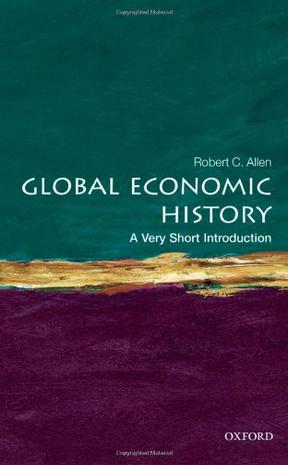
Global Economic History
Why are some countries rich and others poor? In 1500, the income differences were small, but they have grown dramatically since Columbus reached America. Since then, the interplay between geography, globalization, technological change, and economic policy has determined the wealth and poverty of nations. The industrial revolution was Britain's path breaking response to the challenge of globalization. Western Europe and North America joined Britain to form a club of rich nations by pursuing four polices-creating a national market by abolishing internal tariffs and investing in transportation, erecting an external tariff to protect their fledgling industries from British competition, banks to stabilize the currency and mobilize domestic savings for investment, and mass education to prepare people for industrial work. Together these countries pioneered new technologies that have made them ever richer. Before the Industrial Revolution, most of the world's manufacturing was done in Asia, but industries from Casablanca to Canton were destroyed by western competition in the nineteenth century, and Asia was transformed into 'underdeveloped countries' specializing in agriculture. The spread of economic development has been slow since modern technology was invented to fit the needs of rich countries and is ill adapted to the economic and geographical conditions of poor countries. A few countries - Japan, Soviet Russia, South Korea, Taiwan, and perhaps China - have, nonetheless, caught up with the West through creative responses to the technological challenge and with Big Push industrialization that has achieved rapid growth through investment coordination. Whether other countries can emulate the success of East Asia is a challenge for the future. -
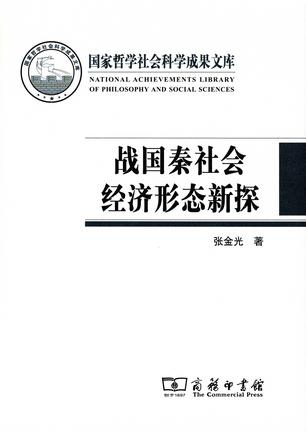
战国秦社会经济形态新探
书稿深入研究了战国秦社会经济形态,内容包括官社经济体制的根基、官社经济体制下的田间佈置规划标准化体系制度、“邑”的社会政治经济实体性、周代的村社组织、《周礼》中的官社经济体制、孟子井田为官社经济体制说、秦的官社经济体制、战国秦汉的“社”与“社”会活动、官社体制下的农民道德政治经济学及赋税原理等。 -
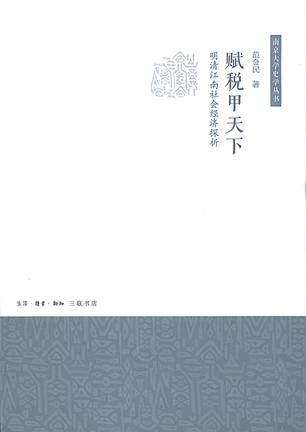
赋税甲天下
本书是作者多年耕耘明清江南社会经济领域的研究成果。作者从社会经济、社会生活、商帮贸易的角度,逐一分析、探讨明清以来江南重赋问题的根源、江南地区的经济结构、江南士大夫文人行为方式的转变等问题。尤其引人注目的是,作者对当下人们关注的热点问题——明清地域商帮——有精彩的叙述和解说。 -
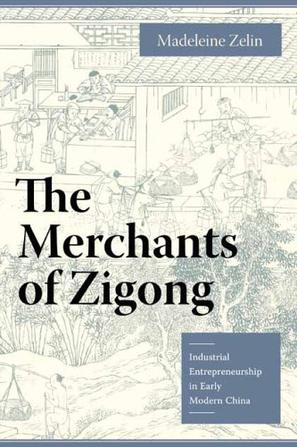
The Merchants of Zigong
At the periphery of the Chinese empire, a group of innovative entrepreneurs built companies that dominated the Chinese salt trade and created thousands of jobs in the Sichuan region. From its dramatic expansion in the early nineteenth century to its decline on the eve of the Sino-Japanese War in the late 1930s, salt production in Zigong was one of the largest and one of the only indigenous large-scale industries in China. Madeleine Zelin recounts the history of the salt industry to reveal a fascinating chapter in China's history and provide new insight into the forces and institutions that shaped Chinese economic and social development independent of Western or Japanese influence. Her book challenges long-held beliefs that social structure, state extraction, the absence of modern banking, and cultural bias against business precluded industrial development in China. Zelin details the novel ways in which Zigong merchants mobilized capital through financial-industrial networks. She describes how entrepreneurs spurred growth by developing new technologies, capturing markets, and building integrated business organizations. Without the state establishing and enforcing rules, Zigong businessmen were free to regulate themselves, utilize contracts, and shape their industry. However, this freedom came at a price, and ultimately the merchants suffered from the underdevelopment of a transportation infrastructure, the political instability of early-twentieth-century China, and the absence of a legislative forum to develop and codify business practices. Zelin's analysis of the political and economic contexts that allowed for the rise and fall of the salt industry also considers why itssuccess did not contribute to "industrial takeoff" during that period in China. Based on extensive research, Zelin's work offers a comprehensive study of the growth of a major Chinese industry and resituates the history of Chinese business within the larger story of worldwide industrial development. -
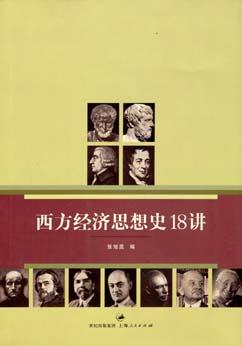
西方经济思想史18讲
张旭昆,浙江工商大学经济学院、浙江大学经济学院、宁波大学商学院教授,中华外国经济学说研究会理事,全国企业数量经济学会理事长。主要著作有:《制度演化分析导论》、《思想市场论分析知识产品演化的一个模式:以经济学为例》、《三次革命与三次综合西方经济学演化模式研究》(蒋自强,张旭昆等)。曾在《经济研究》、《新华文摘》、《中国社会科学季刊》等刊物发表论文多篇。治学原则:独立之精神,自由之思想,求实之态度,创新之冲动。 -

明清时代的农业资本主义萌芽问题
《明清时代的农业资本主义萌芽问题》作者就农业雇佣劳动者法律身份的变化,各种雇佣形态的状况和性质、各类雇主对雇佣关系性质的影响、等级性雇佣劳动向非等级性雇佣劳动过渡等方面,提供了大量资料并结合当时社会经济和上层建筑各方面的条件,对明清时期农业中资本主义萌芽的产生条件、主要指标、农业经济的多种类型和性质以及农业中资本主义萌芽发展迟缓的原因等问题提出初步意见。20世纪五六十年代,我国史学界展开过关于中国资本主义萌芽问题的讨论。当时有关农业方面资本主义萌芽的研究较为薄弱。《明清时代的农业资本主义萌芽问题》在当时起了将中国资本主义萌芽问题研究推向深入的作用,至今仍有参考价值。